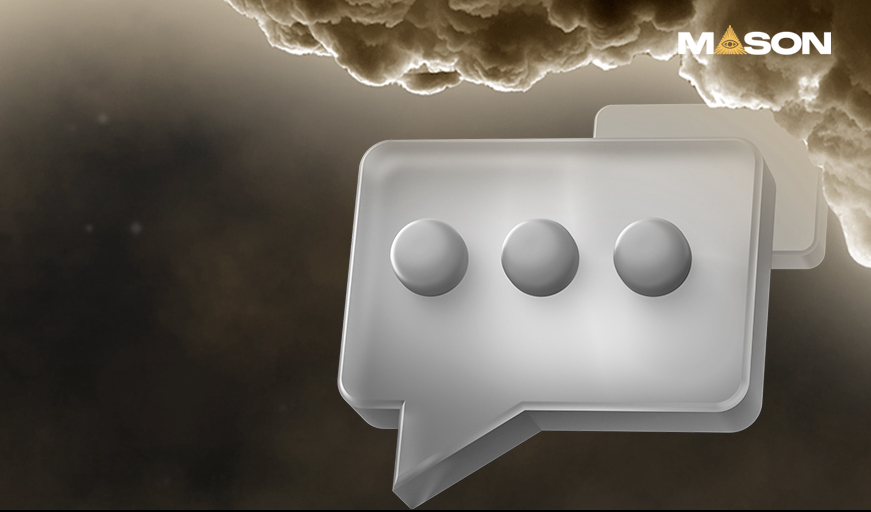What is a crypto wallet?
If you're planning on getting into cryptocurrency, you'll need to set up your crypto wallet before deciding which currencies to invest in. This is where you organize your crypto portfolio. Each wallet has a private key that allows you to — and only for you — gain access to the contents of the wallet. But setting up your wallet — it's not just storing Bitcoin or Ethereum, which you can buy at the Mason-Ex.com crypto exchange. It also allows you to send and receive these and other types of cryptocurrencies securely.
Various types of crypto wallets are available, including mobile apps and USB stick-like wallets. Although there are some differences, most of them function in a similar way, storing private key pairs that allow you to sync your wallet across multiple devices to send and receive cryptocurrency.
Before making your first cryptocurrency purchase, you should definitely know how to use and set up a crypto wallet, as it is much more complex than an electronic wallet. With that in mind, let's take a closer look at how cryptocurrency wallets work.
How do crypto wallets work?
Crypto wallets come in both software and hardware. While each type functions slightly differently, they are all designed to give you secure access to any cryptocurrency you own.
It is important to note that a crypto wallet does not store any real cryptocurrency. Instead, it stores public and private key information needed to complete crypto transactions. The cryptocurrency itself is stored in the blockchain — a type of digital ledger that serves as the basis for the operation of many decentralized cryptocurrencies.
Public and private keys — what's the difference?
Cryptocurrency wallets use two types of keys: private and public.
- Public keys act similar to your bank account number. Public key — this is a long string of random numbers, elements that can be shared with a third party, such as a cryptocurrency exchange, without compromising the security of your wallet. This key allows you to receive cryptocurrency in transactions — often using a wallet address, which is essentially a compressed version of the wallet's public key.
- On the other hand, private keys must always be kept secret. The private key allows you to access the real cryptocurrency on the blockchain. So if someone has access to your private keys, that's as good as having access to the cryptocurrency in your wallet.
Types of crypto wallets
As noted above, crypto wallets can generally be divided into two categories: software and hardware. But there are actually several types of wallets that fall into these general categories.
Let's look at the three most popular types of crypto wallets.
- Hosted wallets are simple and easy to set up, which explains their popularity.
These wallets are "hosted" directly from the exchange where you buy your cryptocurrency, which is why you may sometimes hear them referred to as “exchange wallets.” If you've ever purchased cryptocurrency from an exchange like Coinbase or Kraken and stored that cryptocurrency on the exchange, you've already used a hosted wallet.
When using a hosted wallet, the cryptocurrency exchange usually stores your private key for you. This private information is stored and accessible online, making it potentially vulnerable to hackers. Hosted wallets may also be restricted in use, and you may not be able to perform certain crypto transactions, such as purchasing NFTs, using cryptocurrency held in a hosted wallet. On the other hand, a forgotten password is usually not a problem since the exchange has ways to help you recover that data.
- A non-custodial wallet allows you to fully control your cryptocurrency without the involvement of third parties.
These software wallets typically offer more freedom and features than hosted wallets. For example, if you are interested in purchasing NFTs or staking cryptocurrency (the process in which your cryptocurrency supports a blockchain network and receives rewards for it), you may want to consider using a non-custodial wallet.
With a non-custodial wallet, your cryptocurrencies can be accessed using a private key that is under your control. Since you are the only one who controls the private key, it is important to protect it. The Mason-Ex.com crypto exchange security service recommends that if you forget or lose your key, you will not be able to access your cryptocurrency. And if your key becomes known to someone else, the contents of your wallets may be at risk.
- Hardware wallets, also known as “cold wallets” or “cold storage wallets,” are physical devices.
They tend to look like a USB drive. Your private key to access your cryptocurrency on the blockchain is stored on this device.
Because a hardware wallet is not connected to the Internet and exists in physical form, many consider it the most secure way to store cryptocurrency.
Experts at the crypto exchange Mason-Ex.com note that hardware wallets have several disadvantages. First, popular offerings from companies like Ledger and Trezor can be quite expensive. And although the loss of your wallet — It's not the end of the world, you will need a recovery seed to regain access to your cryptocurrency. Losing your recovery phrase means you are pretty much out of luck and have lost your digital assets.
How to send cryptocurrency from your crypto wallet?
Sending cryptocurrency to another wallet is relatively simple. Once you know the recipient's wallet address, you can open your crypto wallet, choose how much cryptocurrency you want to send, and send it to that address.





